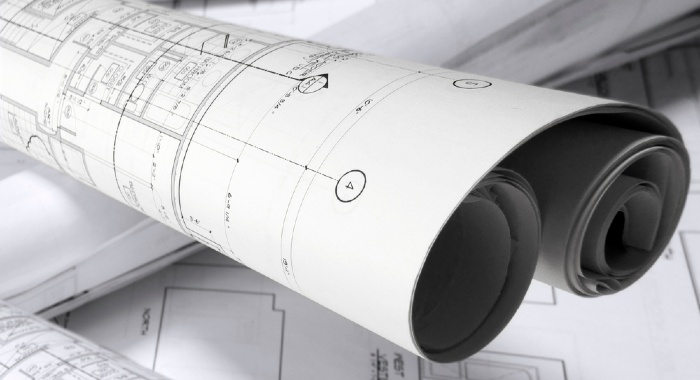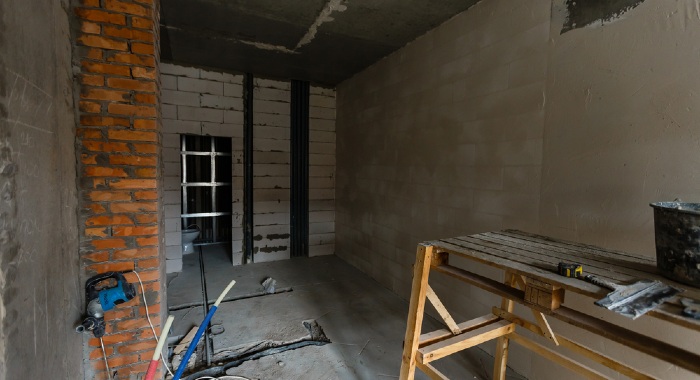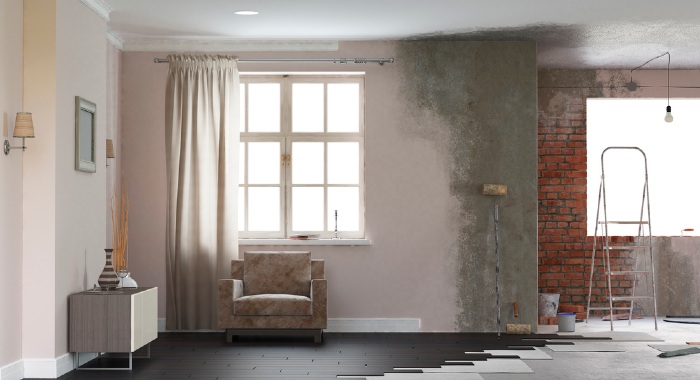When looking for ways to increase the potential sale price of your house, increasing the living space is one of the most popular things to do. But, does an extension add value to your house?
While the answer may almost always be a resounding yes, there’s more to consider than simply how much more your house will be worth.
Is Building An Extension Worthwhile?
Sure, everyone likes a little extra living space, and extensions increase the square footage of a property which usually adds value. But, before you rush in, take your time to consider the following factors so you can be sure an extension is right for you:
Ceiling Price In The Area
All areas have a ‘ceiling price’. That’s the maximum amount people will pay for a house in a specific area, regardless of what work has been done to it.
People will often look to buy the worst house on the best street. Few people want the best house on the worst street.
Therefore, before starting work on extending the property, check that the house isn’t already approaching its ceiling price. A good estate agent will be able to advise on this.
Build Costs Vs Value Gain
In most cases, adding an extension will increase the value of a property. However, that isn’t the only consideration you should make.
If you are planning on selling your property in the near future, the cost of creating an extension must be less than the value you’ll gain from doing so.
You can get quotes from local tradesman for the cost of the build and then compare them to the estimated value increase you’ll get.
Complexity Of The Build
The complexity of building your extension will also come in to play when asking if building an extension will add value to your property.
If you are looking to build on sloping ground, for instance, the extra work that will be required to lay the foundations could make the extension more expensive than the amount you’ll gain in added value.
Quality Of The Build

If you’re looking to build to add value to your property, make sure that the work is done by qualified people to a high standard.
For instance, if the extension will require electrical work, use a Part P qualified electrician who will ensure the work meets current building regulations.
A poorly built extension that doesn’t comply with building regulations can actually lower the value of the property, rather than increase it, as potential buyers will need to factor in the costs of rectifying the issues.
Inconvenience & Stress
Of course, as with any major property renovation, there will be an element of upheaval for anyone living at the property.
You’ll want to be sure that the amount you’ll gain in property value increases, justifies the inconvenience and stress you’ll experience while the works are ongoing.
Finance Costs
If you don’t have the money to pay for the extension costs up-front, be careful that the cost of gaining the finance needed will not outweigh the value you’ll add to your house.
Best Extensions For Increasing House Value
If, after considering the above factors, you have decided an extension is worth adding to your property, the next step is to decide which type of extension is best for you.
This will depend on a number of factors, not least the style of property you have, but the best types of extensions for adding value tend to be as follows:
Loft Conversion

This is one of the most popular types of extensions, primarily due to its relatively low cost and the fact it is one of the least disruptive ways to add extra space to a property.
A loft conversion is generally used to add an extra bedroom, and sometimes a bathroom too. It’s estimated that a loft conversion will add around 12.5% to the value of your house.
Single or Double-Storey Extension
Useful for adding extra space to living rooms and/or kitchens, single-storey extensions are often used to increase the living space of a property. If you want more bang for your buck, make it a double-storey extension to add extra bedrooms or create room for an en-suite.
A full-blown double-storey extension could add as much as 11% to the value of your house.
Conservatory
With the irregular British weather, conservatories have become a must-have for creating a space where the garden can be enjoyed all year round.
They are relatively cheap (you’ll be looking at around £5,000 and upwards) and easy to install and can add around 5-7% to the value of your property.
Garage Conversion
Most single garages are too narrow to comfortably fit modern cars in. As a result, most people use them as a dumping ground for items they don’t actually need anymore.
With living space at a premium, it might make sense to convert your garage into an additional bedroom, particularly if it’s an integrated garage. You can always leave part of it as storage space if you are worried about losing places to put things.
Converting a garage into a bedroom with an en-suite could add as much as 20% to the value of your home. If you use it to create a playroom or study, you could be looking at a 10% increase in value.
Alternatives To Extensions
While extensions do add value to your house (in most cases!), there are a number of factors that may make you decide against adding one to your home. If this sounds like you, don’t despair as there are other ways you can add value to your home.
For example, rather than actually building the extension, you can always just get the planning permission in place. This will make it more desirable to buyers who want to extend and will, therefore, increase the value without you needing to spend the money and time having the work done.
You can also check out our article on how to add value to an investment property since many of the methods also apply to homeowners. If you are putting your property on the market and want to increase the likelihood of getting a higher sale price without any building work, check out our top 5 ways to get higher offers for your house.
Where to start with a home extension
The first question to ask is, ‘Where do you start with a home extension project?’ This means you’ll need to appreciate:
The cost of extending your house
Before committing yourself to an ambitious house extension project, you’ll need to consider how much your property’s value will increase.
Basically, you need to understand that by investing a large sum for the cost to extend a house, may not necessarily equate to a big increase in your property’s valuation.
For example, if you are considering a £30,000 loft conversion project to create an extra bedroom, there’s no guarantee that the house price will increase by a similar amount.
This then brings us to the other issue; it’s not all about the money. You may simply want the extra space for a growing family, for example, rather than boosting property values.
Planning permission for a house extension

Before you even begin considering building a house extension, you will need to check whether you need planning permission from your local authority.
Most councils now have really good websites to find out, and you can also confirm or check with a building professional, including a potential architect for their advice.
To help, you will require planning permission if:
- Your extension will cover half the area of land that is surrounding your property;
- It is extending towards a road;
- The overall height of the property is being increased;
- You are extending more than 6 metres from the back of a semi-detached property;
- For a detached house, you are extending more than 8 metres from the rear;
- You want a single-storey extension that is taller than 4 metres;
- For a single-storey extension to the property’s side, it is more than half the width of the property;
- Using materials that are different from the original style used;
- Your plans include a raised veranda or balcony;
- Your home is listed.
Should you need to apply for planning permission for your extension, it may be granted, or it may be granted with conditions attached. You may be refused permission for building an extension.
The reasons to refuse planning permission for a house extension include the impact it will have on your neighbours – especially if a balcony is overlooking their home, the area’s character and the potential impact on road safety.
This also means you’ll need to understand what is referred to as ‘permitted development’.
Permitted development
Permitted developments do not need planning approval from the local authority and cover things like a small extension to the rear of your property, as well as loft conversions.
Should your property be listed, or it’s in a conservation area, then you will find that planning rules are stricter.
There’s also the issue over the Party Wall etc Act 1996 because you’ll need to tell your next-door neighbours at least two months before the project begins that building will take place. This is an important part of the legal process, and you should adhere to it.
Essentially, the type of work that will need planning approval include:
- Loft conversions;
- House extensions;
- Internal structural alterations, such as knocking down an internal load-bearing wall;
- Installation of showers, baths and toilets that involve new waste or drainage plumbing.
Should planning permission be rejected, then you’ll have a limited time to appeal and this will be considered by an independent planning inspector. You will need to appreciate the reasons why refusal has been given and whether you are able to appeal at all.
There’s a very good website dealing with planning permission for extensions for those who need more information.
House extensions and building regulations

Once you’ve dealt with the planning permission issue, you will still need to comply with building regulations.
The regulations offer a national minimum standard for the construction, as well as the design, of the extension to ensure the safety of those who are building it and those who will live in it.
Your extension will also need to be energy efficient.
It’s also important that you confirm with the builders carrying out the work whether they can self-certify the construction for building regs purposes.
If not, they will need to liaise with your local council’s building control officers and have them inspect the work.
These inspections will take part at regular stages, including when building starts and the excavation of any foundations. The building inspectors will need to have:
- The estimate of your building costs;
- Two copies of detailed drawings;
- Two copies of your site plan showing not only your proposal but also site boundaries;
- Another two copies of plans with the specifications to accompany the drawings, including structural calculations;
- Four copies of your plans for the building that will be covered by fire safety legislation including any fire resistance measures, fire detection and alarms, means of escape and signage, and also emergency lighting.
Building over or near to sewers
It’s worth noting that should you be building over or near to sewers, then this will be an issue to address.
You will have to contact the local water authority before commencing work, and you’ll need a ‘build over agreement’ with them if a shared sewer is within three metres of your extension.
It’s also worth noting that these permissions can be tricky, as well as expensive to obtain, particularly if you have to install a new manhole or move an existing one.
Your extension meets building regulations
When your extension meets building regulations, then a certificate proving this is handed over.
However, building regulations really do need to be met, and this is not an issue you can fudge. Fail to comply, and you’ll be served with a notice for having the faults corrected or even worse, having your new extension demolished.
Also, not having your extension certified as complying with building regulations may lead to serious issues when you come to sell your home.
Another important consideration when it comes to building regulations is whether your extension complies with fire regulations. The regulations are a lot tighter for extensions of at least three stories which may mean fitting special fire doors. Always seek professional advice if this is going to be an issue.
How to design a house extension

While you could take inspiration from online sites and magazines, it’s a good idea to employ an architect to design your home’s extension.
There’s no law stating that you must do this, but you will be using the architect’s experience to help deliver an impressive extension that fulfils your hopes for it.
You may be tempted to use a builder’s design, but an architect will bring more creativity by understanding how to utilise the space you have to better effect.
The architect will also understand the planning permission and building regulations problems and help you steer a clear path through them.
This means you will need to understand the design stage, including:
- Design the exterior to show what it looks like when completed;
- Include the roof height and structure;
- Design the exterior materials including windows and doors;
- Understand the footprint for your design and how much space you will have;
- Decide whether materials will match your existing home;
- Decide whether you will have an open plan living space.
Other design concerns
You will need to factor in the issue of planning in the services for the cost to extend a house, which means confirming where your white goods, cooker and units will go.
This means you can then plan where the plumbing, ventilation and electrics need to be and if it’s a particularly large extension, where a new bathroom will be placed.
Another issue when it comes to designing that gets overlooked is appreciating whether your boiler can cope with heating the space in a house extension.
That’s because the extension will add demand to the home’s hot water system and may not cope. This means you may need a new boiler and new radiators for the extension to be heated effectively.
You will need to factor in the price for the architect’s services, but this could be money well spent.
Architects are easy to find either online or using professional member organisations, such as the Royal Institute of British Architects.
It is a good idea to use an architect who has a track record in designing and completing house extension projects.
Also, some architects and extension designers may charge for their initial visit so check first before asking them to call.
How to manage building a house extension

Having discussed the benefits of employing an architect to design a house extension, you must also consider who will manage the building work.
For things like a loft conversion, the design and build company you hire will manage this process for you.
For larger projects, the main contractor will be used to manage the building process, or you could pay the architect to do this for you.
Again, this is a project that you could manage and many people do so, but you’ll need to understand how to manage subcontractors for each building stage which means hiring plasterers, plumbers and electricians to complete the work at scheduled times.
If you’ve ever watched programmes like Grand Designs, then you will be aware that most building projects do not proceed without any hiccups and managing builders and subcontractors can be a very stressful undertaking.
How to budget for a house extension project
We have already mentioned that you need to consider whether the amount you want to spend on extending your property will be reflected in improved property values.
This means you’ll need to consider carefully how to budget for your house extension project and be realistic when you do so.
You can approach building firms to see how much it’s likely to cost to extend your house, and they may already have plans available for you to adapt.
Most building firms will be charging per square metre of the extension’s floor space.
You also need to take into account digging the extension’s foundations, the quality of materials to be used – including those for the interior fixtures and the roof tiles.
When asking a builder or an architect for their input on costs, make sure that they add VAT to their estimates, and you’ll need to budget extra for any unexpected costs. It is usual to have a contingency fund of between 10% and 20%.
Do not believe that your house extension project will be carried out on time and within budget. It’s very likely this will not happen!
Tell your home insurance provider
One of the issues overlooked when putting together a house extension project is telling your home insurance provider what you are doing.
Firstly, your new extension will probably increase the rebuilding cost for your home which, in turn, will affect the policy premium.
Also, your current policy may well cover a new extension, but you should always let your insurer know what you are doing, or are about to do, so there’s no issue of the policy being declared void if there is a problem.
This is the point to highlight that you may need specific building site insurance because it’s unlikely your current provider will cover any issues such as damage being caused during building work.
Tell your neighbours about your home extension plans

Another potential issue that may not be considered at the planning stage is telling your neighbours about your home extension plans. You should:
- Speak with them before you apply to the local authority for planning permission;
- Spend time showing your neighbours any sketches;
- Discuss the issues or concerns they may have.
Among the questions raised will be that of disruption while building work is ongoing, and whether the new extension will overlook their home.
These are issues that can be amicably resolved in the design stages, and you should do this before the local authority contacts them by letter asking for their comments on your planning permission application.
Having your neighbours onside from the very beginning will help prevent any major headaches occurring.
How to find a house extension builder
Perhaps the most important aspect for building a house extension is finding the best builder for the project.
You should choose a builder, preferably one that is a member of a trade body such as the Federation of Master Builders, who has an established record in building extensions. You should ask them:
- Was their last project completed on time and within budget?
- Did they have any unforeseen problems, and how did the builder deal with those?
- Go see previous examples of their building work;
- Spend time speaking with their previous clients.
To find the best builder, you should seek at least three written quotations and check the details to ensure you are comparing their quotes on a like-for-like basis.
Finally, when finding a builder for your house extension project, you’ll need to be working with builders who you can get on well with – not only will you be sharing your home with them for weeks or months, but you need to trust them to carry out the work well.
You also need to check – and then doublecheck – any contract you sign, particularly when you need to make payments for when specific work is completed.
This should not be at different stages since it can be difficult to determine when the project is halfway completed, for example.
Issues to consider when building a house extension
Other issues that need to be considered when building a house extension include:
Living on site

If you live on-site you may slow down building progress, so it may be an idea to move out to a short-term rental property, a hotel or live with friends or family.
Access restrictions
Options for a house extension will be restricted over access issues, for example, if you live in a terraced house will mean your house extension design will be affected. You may also need to discuss with neighbours the removal for a temporary time of fence panels or even using their land for a short time.
Privacy
While you may have come up with an impressive new house extension design, just how private will life be once it’s complete? You need to consider whether neighbours or passers-by are able to see into your property.
Protected trees
If you have a tree on the property, then you need to know whether it is protected by a Tree Preservation Order. You cannot prune or alter the tree with an order without having planning permission first.




